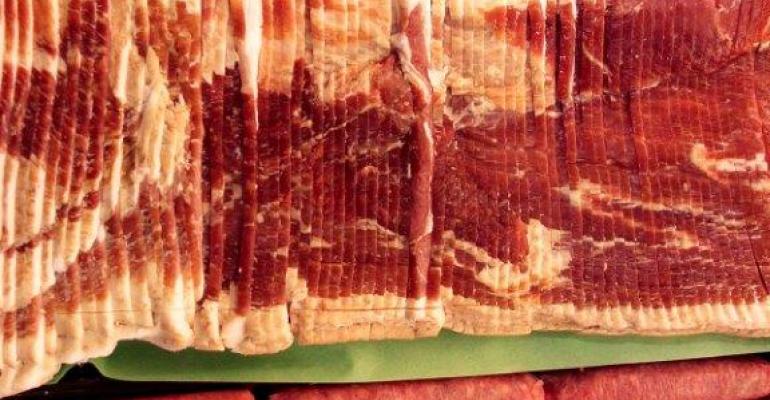High-oleic soy rations studied for swine, poultry
Research shows high-oleic fats from soybean oil may transfer to livestock.
August 9, 2018

The idea that, in order to make better bacon, feed the animals a better soybean, led University of Missouri food scientist Bryon Wiegand to study the use of high-oleic soybean oil in livestock rations.
In a report at Soy Day, sponsored by the Missouri Soybean Merchandising Council, Wiegand joined University of Missouri faculty in telling farmers how their soybean checkoff dollars support research.
University of Missouri plant breeders developed soybean varieties with high levels of the desirable high-oleic oil, a monounsaturated fat used in healthy diets.
Wiegand noted that his research shows that high-oleic fats from the soybean may transfer to animals, and high-oleic oil has heart-healthy characteristics and adds to the storage life of food.
Using high-oleic soybean oil and meal isn’t new for Wiegand. He started livestock ration studies on lambs. Like cattle, sheep have rumens that break down feed into usable nutrients. Rumen microbes also alter oleic carbon chains, and desirable traits don’t easily pass to animal meat or fat.
Pigs, broilers and laying hens are non-ruminants. “Pigs are what they eat. The oleic non-saturated fat passes through to animals,” Wiegand said
“Broiler chicks have been fed high-oleic soybean diets,” he noted, but those data haven’t been analyzed.
Next up is a laying hen study to determine the effects the soybeans have on egg yolks. “Already, you can buy eggs with high omega-3 fatty acid,” Wiegand said. “We aim to add high-oleic content.”
Another high-oleic soybean study continues at the MU South Farm, where 30 steers are receiving high-oleic feed.
High-oleic soybean varieties were first developed by plant breeders using non-transgenic methods.
The University of Missouri holds a patent with the U.S. Department of Agriculture for the high-oleic oil soybean. The Missouri Soybean Merchandising Council owns exclusive licensing of varieties from its research dollars.
You May Also Like

.png?width=300&auto=webp&quality=80&disable=upscale)

